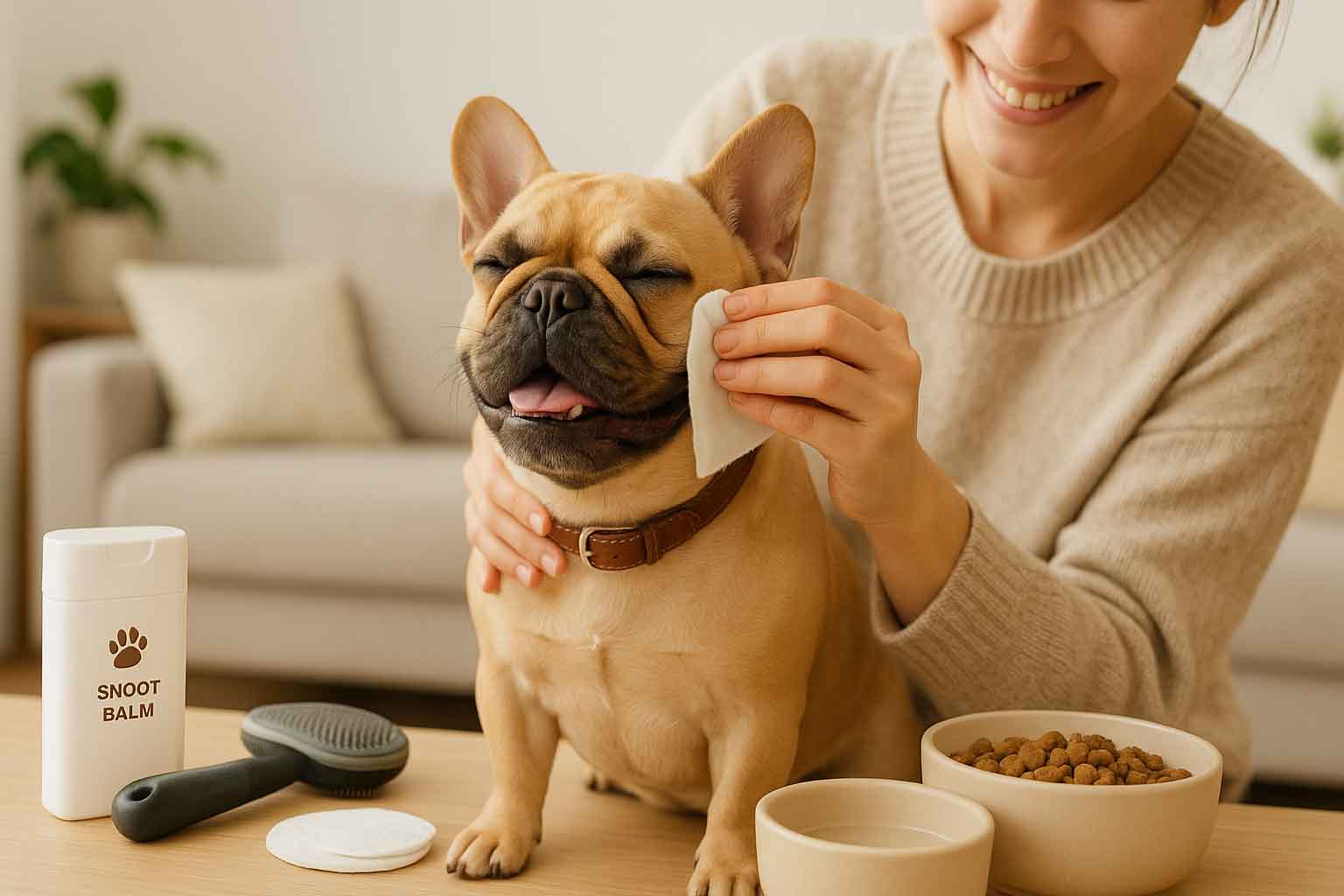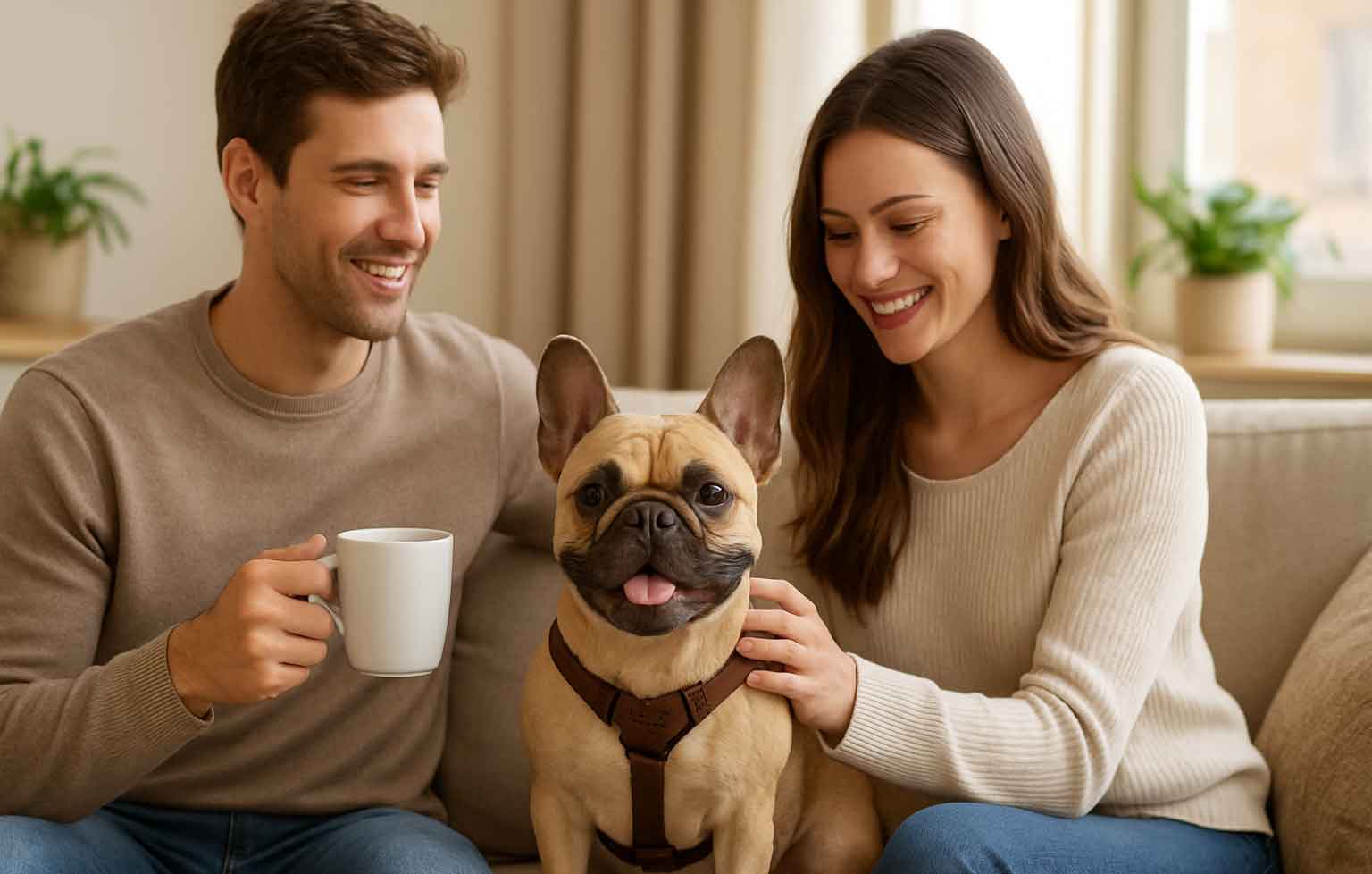The Ultimate Guide to French Bulldogs (Frenchies) in the USA
French Bulldogs, or Frenchies, have become one of the most beloved and recognizable dog breeds in the United States. With their distinctive bat ears, compact size, and charming personality, French Bulldogs are often seen as a status symbol, a companion for all ages, and a great family pet. Whether you’re considering adding a Frenchie to your family or simply want to learn more about these adorable pups, you’ve come to the right place.
In this guide, we will explore everything you need to know about French Bulldogs: their history, characteristics, how to care for them, and what to expect in terms of costs and adoption.
The Fascinating History of French Bulldogs (Frenchies)
The French Bulldog’s story dates back to the mid-19th century and involves a combination of breeding for size, personality, and appearance.
Origins in England
The French Bulldog originally descended from the English Bulldog. In the 1800s, English Bulldogs were bred for various purposes, including bull-baiting. After bull-baiting was banned in 1835, English Bulldogs were bred for other purposes, and smaller versions of the breed began to emerge. These smaller Bulldogs, weighing between 7 to 11 kg (15 to 24 lbs), were the ancestors of the modern French Bulldog.
Moving to France
At the same time, during the Industrial Revolution, many lace workers from Nottingham, England, relocated to Normandy, France. These workers brought their small Bulldogs with them. As the popularity of smaller Bulldogs grew, many of the larger dogs were left behind in England, and smaller Bulldogs began being sent to France for breeding purposes.
By 1860, France became the central hub for these tiny Bulldogs, and they started to develop their own distinct characteristics, like large, erect ears that were different from the traditional drooping ears of English Bulldogs. This change is thought to have come from cross-breeding with terriers, which helped create the French Bulldog’s now-iconic bat-shaped ears.
The French Bulldog Becomes Fashionable
By the late 1800s, the French Bulldog, or Bouledogue Français in French, was highly fashionable in Parisian society. Artists, writers, and fashion designers were seen with these fashionable little dogs. Edgar Degas and Henri de Toulouse-Lautrec even included French Bulldogs in their famous artworks. The breed also became popular with both Parisian high society and the working-class women of the time, including sex workers who were seen with these small dogs.
The dogs were well-regarded for their affectionate and loyal personalities, making them ideal companions for people from all walks of life.
Why French Bulldogs Make Excellent Pets
The French Bulldog, or Frenchie, is a perfect companion for various types of owners, from singles to large families. Let’s take a closer look at what makes these dogs so appealing:
Frenchie for Men
A Frenchie for men is a great choice if you’re looking for a dog that is low-maintenance but still full of personality. They are playful, loyal, and form strong bonds with their owners. Their relatively small size and affectionate nature make them perfect for men who want a loyal companion to relax with after a long day at work or go for casual walks around the neighborhood.
One of the best things about having a Frenchie as a male owner is that they’re not overly needy or high-maintenance. They will happily keep you company while you unwind on the couch, but they also enjoy playful interactions.
Frenchie for Women
For women, a Frenchie for women is a charming and loving companion. French Bulldogs are great with kids, which makes them an excellent choice for women with young children. Their sweet and affectionate nature makes them ideal pets for a relaxing evening at home, and they often form strong emotional bonds with their female owners. Frenchies are especially suited to women who want a compact dog that is easy to manage and can be carried around with ease.
French Bulldogs are also highly adaptable to apartment living, so they’re perfect for women who live in city spaces or small homes. Their small stature and minimal exercise needs make them an easy pet to care for in a busy lifestyle.
Caring for Your French Bulldog (Frenchie)
Taking care of a French Bulldog requires a little extra attention due to their unique characteristics. Frenchies are a brachycephalic breed, meaning they have flat faces, which can make them more prone to breathing problems. Here’s everything you need to know about caring for your Frenchie:
Frenchie Food: What to Feed Your French Bulldog
Feeding your French Bulldog properly is vital to their overall health. French Bulldogs are prone to obesity, so portion control and high-quality food are crucial. You’ll want to choose a dog food that contains a high amount of protein but isn’t full of fillers like corn and soy. Look for food that is specifically formulated for small or toy breeds to meet their nutritional needs.
It’s also essential to make sure your Frenchie doesn’t overeat. Because of their adorable faces, it’s easy to fall into the trap of giving them too many treats. Instead, stick to regular meal times, and keep track of their weight.
A typical Frenchie’s food intake will vary based on age, activity level, and overall health, but most adult French Bulldogs eat around 1 to 1.5 cups of high-quality dry food per day, divided into two meals.
Grooming Your French Bulldog
French Bulldogs don’t require much grooming, but their distinctive wrinkled skin does need regular attention. The folds in their skin, especially around their face, should be cleaned and dried frequently to avoid the buildup of bacteria or moisture, which could lead to skin infections.
Additionally, brushing your Frenchie’s short coat once a week can help keep shedding under control and maintain their sleek appearance. Use a soft brush to remove loose hairs.
Exercise and Health
Although French Bulldogs are not high-energy dogs, they do need regular exercise. Short walks are perfect for Frenchies, but avoid overexerting them, especially during hot weather. Their flat faces make it harder for them to cool down, so be mindful of their breathing and hydration levels.
Frenchies are prone to certain health conditions, such as hip dysplasia, intervertebral disc disease (IVDD), and brachycephalic airway syndrome. Regular vet check-ups, a healthy diet, and appropriate exercise are all crucial to their well-being.
How Much Do Frenchies Cost?
The price of a Frenchie can vary significantly based on factors like location, pedigree, and whether the dog has been bred for show or companionship. On average, Frenchie puppies cost between $1,500 and $8,000, depending on factors such as coat color and bloodline.
Some rare color variations, like the blue or merle French Bulldog, can cost even more. Additionally, some high-end breeders may charge higher prices for puppies from champion bloodlines or for Frenchies with specific health guarantees.
Other Costs of Owning a French Bulldog
Beyond the initial cost of the puppy, owning a French Bulldog comes with other ongoing expenses. Regular vet visits, high-quality food, grooming supplies, and health insurance can all add up over time. Frenchies can also be prone to certain health issues, which means potential vet bills may be higher than average.
Conclusion
In conclusion, French Bulldogs, or Frenchies, are one of the most lovable and popular dog breeds in the world. Whether you’re a man, woman, or family, Frenchies are ideal companions thanks to their playful yet relaxed nature. Their small size makes them perfect for apartment living, and their affectionate personality means they thrive as lap dogs.
However, owning a French Bulldog requires careful attention to their unique care needs, from their food and grooming to managing potential health issues. But if you’re ready for a small, loyal companion with tons of personality, a Frenchie could be the perfect fit for you.
So, whether you’re adopting a Frenchie puppy, feeding your French Bulldog, or deciding if a Frenchie for men or Frenchie for women fits your lifestyle, this breed promises to bring love and joy into your life for years to come.


